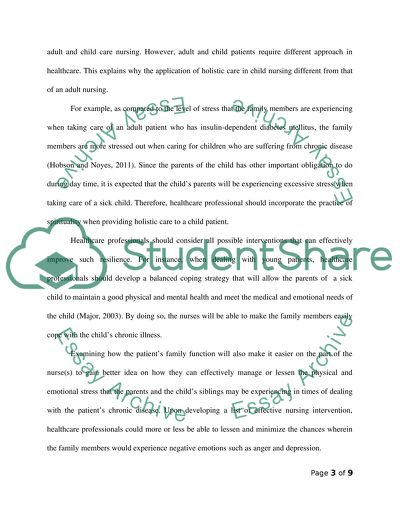Cite this document
(“Holistic Care in Relation to Adult Nursing and Child Nursing Essay”, n.d.)
Holistic Care in Relation to Adult Nursing and Child Nursing Essay. Retrieved from https://studentshare.org/nursing/1452865-discuss-holistic-care-in-relation-to-adult-nursing
Holistic Care in Relation to Adult Nursing and Child Nursing Essay. Retrieved from https://studentshare.org/nursing/1452865-discuss-holistic-care-in-relation-to-adult-nursing
(Holistic Care in Relation to Adult Nursing and Child Nursing Essay)
Holistic Care in Relation to Adult Nursing and Child Nursing Essay. https://studentshare.org/nursing/1452865-discuss-holistic-care-in-relation-to-adult-nursing.
Holistic Care in Relation to Adult Nursing and Child Nursing Essay. https://studentshare.org/nursing/1452865-discuss-holistic-care-in-relation-to-adult-nursing.
“Holistic Care in Relation to Adult Nursing and Child Nursing Essay”, n.d. https://studentshare.org/nursing/1452865-discuss-holistic-care-in-relation-to-adult-nursing.


